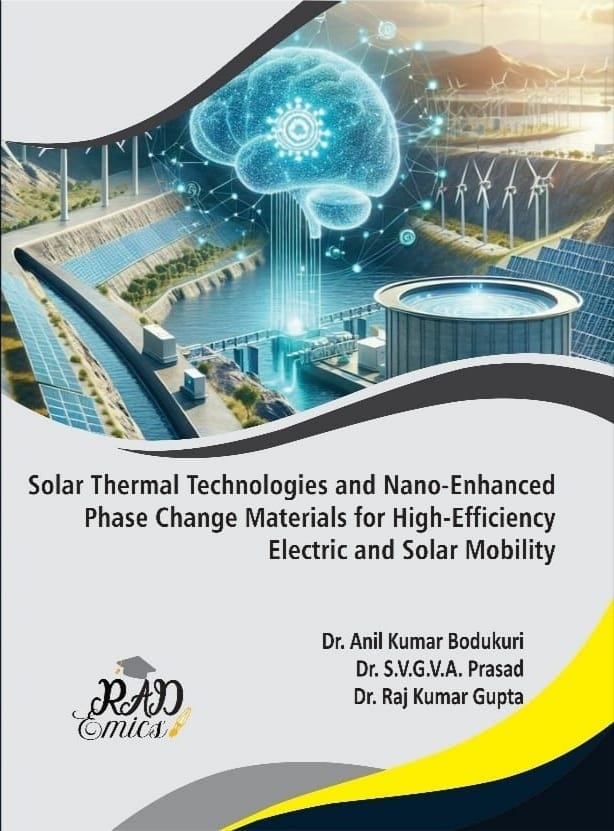
Abstract
The escalating demand for efficient and reliable thermal management in electric vehicles (EVs) necessitates the integration of advanced technologies to address the challenges posed by battery overheating and energy inefficiency. This chapter explores the synergistic application of artificial intelligence (AI) and machine learning algorithms in optimizing real-time thermal regulation through phase change material (PCM) technologies. By leveraging data-driven predictive models and adaptive control strategies, AI enhances the responsiveness and precision of PCM-based thermal systems, thereby extending battery lifespan and improving vehicle safety. The discussion emphasizes key challenges such as data privacy, algorithmic transparency, and the establishment of governance frameworks to ensure trustworthy and ethical AI deployment in EV thermal management. By the chapter underscores the importance of interdisciplinary approaches combining material science, automotive engineering, and AI to foster sustainable and autonomous thermal solutions. The findings and insights presented herein contribute to the advancement of intelligent thermal management systems, promoting the transition toward cleaner, safer, and more efficient electric mobility.
Introduction
The rapid global transition toward sustainable transportation has propelled electric vehicles (EVs) to the forefront of automotive innovation [1]. Central to the performance and safety of EVs is the effective management of battery temperature, as lithium-ion batteries exhibit high sensitivity to thermal variations [2]. Excessive heat can accelerate battery degradation, reduce operational efficiency, and even pose safety hazards such as thermal runaway [3]. Traditional thermal management approaches, predominantly relying on passive cooling systems or fixed control mechanisms, often struggle to adapt to the dynamic thermal loads generated during varied driving conditions and fluctuating ambient environments [4]. These limitations emphasize the urgent need for advanced thermal regulation solutions that are capable of real-time response and intelligent adaptation to maintain optimal battery temperature within safe operating limits [5].
Phase change materials (PCMs) have emerged as promising candidates for improving thermal management in EVs by leveraging their ability to absorb, store, and release latent heat during phase transitions [6]. This intrinsic characteristic allows PCMs to buffer temperature spikes effectively, thereby stabilizing battery thermal conditions without excessive energy consumption [7]. Â Thepassive nature of PCM cooling requires integration with smart control systems to maximize efficiency [8]. The advent of artificial intelligence (AI) and machine learning (ML) offers transformative opportunities to enhance PCM-based thermal systems [9]. By processing real-time sensor data and learning from complex thermal patterns, AI algorithms can dynamically control PCM activation and optimize heat dissipation strategies tailored to individual vehicle requirements, driving cycles, and environmental factors, thus surpassing conventional thermal management performance [10].